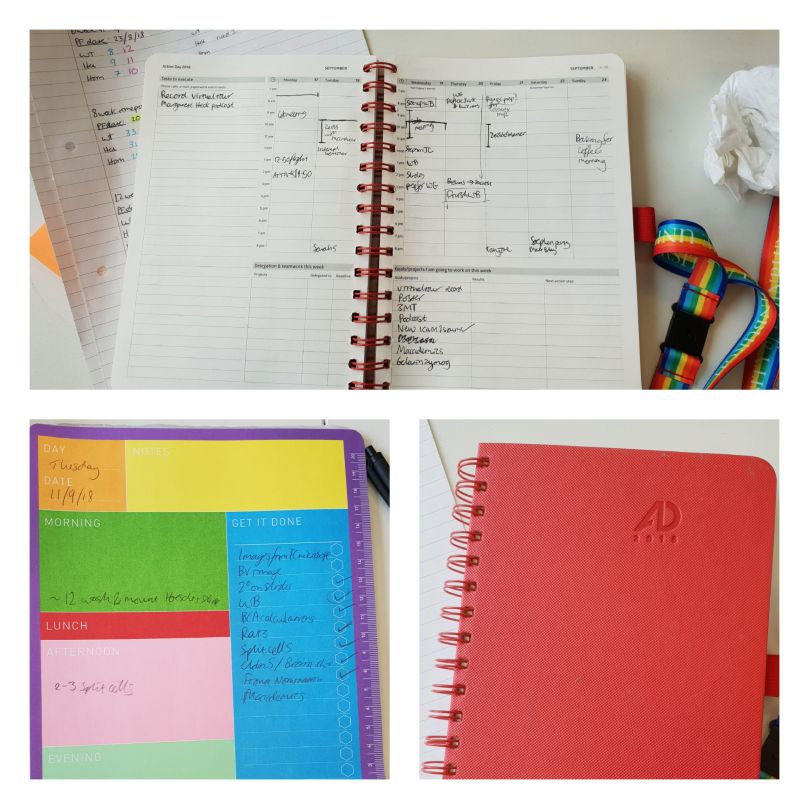Planning for Action…
…by Sophie / from the United Kingdom / PhD Tissue Repair / 4th Year
The timing of your experiments can make all the difference. Putting things in place can help you get the best out of your day, your week your month or even your PhD *clapclapclapclap*
I’m not keen to be preachy and tell you how to run your life, cos I mean frankly what do I know, but I do love multitasking. So here’s how I try to be efficient!
Short-term planning
The drug was incubated with the cells for the amount of time it took the researcher to have lunch.
Scheduling your day effectively can mean you fit more experiments in but it can also mean you have working hours that fit with your preferences. On a Monday I tend to lay out my week using this planner thing I got on Amazon which I love and helps me see what the week ahead can look like. When I arrive each morning I make a days to do list and put in timings too if I can. I know, horrendous isn’t it, but it helps me feel like I get stuff done every day and reminds me to get smaller tasks like emails done. If I have a long incubation I’ll plan what I do with that time… another experiment? A break? Remember, there’s always time for lunch if you pick your timepoints well!

Sometimes I end up with lists of my lists.
Medium-term planning
“This similar reagent was substituted because the researcher had run out of the one in the protocol.”
When you’re organising a new experiment there’s definitely a balance to be struck between rushing something and overthinking it. I’ve definitely done both. If it’s something you’ve done a dozen times there’s no point in spending a day planning but if you’re trying a new protocol it’s absolutely worth an extra few hours making sure you know where all your reagents are, what order you’ll need everything and fully understanding all the steps. Okay this sounds super obvious but when I’ve been excited to get going on an experiment I’ve not checked these things and ended up in a wee bit of a flap mid-experiment. However, over-planning can be bad too. If there’s something you’re reluctant to do because you’re not confident with it, it’s tempting to plan and plan and plan to the most infinitesimal detail. My advice is, just do it! Have a bash! Maybe less so if its scRNAseq and costs you £10,000 a pop, although there will always be a first time you do every experiment and it probably won’t get less scary. Always ask yourself what is the actual worst thing that could happen.

Long-term planning
“This hypothesis arose when the outlier was explored rather than discounted.”
I was going to say that a PhD is a marathon and not a sprint, but I realised that analogy is pretty pants because a marathon has a defined route, a specific endpoint and no hurdles. While its true that you have to pace yourself throughout your PhD and that this requires a long-term plan, what’s important to know is that the route will almost certainly change and so must your plans. It’s absolutely worthwhile having overall goals, dividing your project up into aims and objectives (big presentations and lab reports helped me do this!) but being adaptable is so important. Tracking your progress and knowing more or less where you’re heading is the best approach, regularly reminding yourself of the broader aims. The PhD marathon is more like orienteering, but you will still need helpful stewards (post-docs and friends) along the way to pass you protein shakes (wine) and maybe chuck a bottle of water in your face (figuratively. Probably.)

Footnote: I told my husband I was publishing a post about the efficient use of time and he joked that it wasn’t an efficient use of my time. Well JOKES ON HIM I wrote it on the bus.



